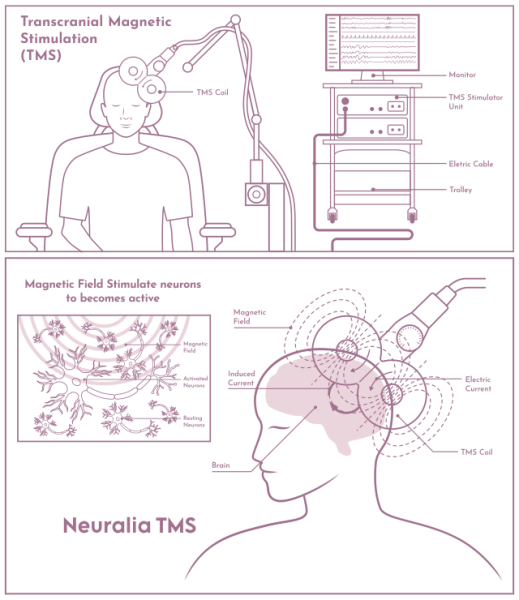Australia, 17th Jul 2025, – Neuralia TMS, a trusted provider of evidence-based neuromodulation therapies, has announced the launch of a specialised Transcranial Magnetic Stimulation (TMS) therapy program in Perth, targeting individuals diagnosed with Post-Traumatic Stress Disorder (PTSD). This development follows the conclusion of a clinical trial demonstrating measurable reductions in PTSD symptom severity through focused neuromodulation techniques.

The newly implemented program is based on a clinical model that adapts standard TMS protocols to specifically address trauma-related brain activity patterns. The decision to introduce this treatment in Western Australia reflects recent advancements in neuroscience and a growing body of peer-reviewed research supporting neuromodulation for trauma-related conditions.
The clinical trial preceding the program’s launch tracked symptom progression among individuals with chronic PTSD who underwent a six-week course of TMS therapy. Participants reported improvements in sleep regulation, emotional stability, and decreased frequency of distressing recollections. The outcomes are consistent with existing international findings suggesting targeted stimulation of the right dorsolateral prefrontal cortex may contribute to improved emotional processing in individuals with PTSD.
Dr Shanek Wick, Medical Director of Neuralia TMS, described the program as a practical application of evidence-based neuroscience in the context of trauma care. “PTSD continues to represent a significant treatment challenge due to its complex neurological and psychological components. The availability of focused TMS therapy in Perth introduces a non-invasive clinical option that has shown encouraging results in controlled environments,” stated Dr Wick.
Neuralia TMS has operated clinics across Victoria and Western Australia since 2022, offering neuromodulation therapies for a range of treatment-resistant conditions including depression, anxiety, obsessive-compulsive disorder, and neurological disorders such as Parkinson’s disease. The Perth-based PTSD initiative marks the organisation’s first formal rollout of a condition-specific protocol tailored exclusively for trauma-related disorders.
The treatment framework includes diagnostic assessments, standardised treatment protocols, and outcome monitoring using validated clinical scales. Sessions are conducted by qualified clinicians using certified TMS equipment, with each treatment customised to reflect individual neurological response patterns. Referrals are accepted from psychiatrists and general practitioners, with patient outcomes shared through coordinated care models.
Although TMS has long been established as a treatment for major depressive disorder, its application in PTSD is considered an emerging field. However, recent international data, including findings from the U.S. Department of Veterans Affairs and several academic medical centres, have increasingly identified TMS as a viable therapeutic approach for patients with trauma-related symptoms who have shown limited response to medication or psychotherapy.

Current Australian guidelines acknowledge TMS therapy as a consideration for complex psychiatric conditions, particularly in cases where conventional methods have proven ineffective. Despite this, PTSD remains outside the scope of Medicare-funded TMS sessions under existing national policy. Several healthcare organisations, including those involved in clinical research, continue to advocate for broader coverage as additional data becomes available.
Dr Wick also commented on the potential future direction of neuromodulation therapies in psychiatric treatment. “This initiative represents a larger strategic vision focused on integrating precision-based technologies into mental health care. With advances in digital monitoring, pharmacogenetics, and neurostimulation, treatment approaches are expected to become increasingly individualised, improving long-term outcomes for patients experiencing complex and chronic conditions,” Dr Wick added.
Neuralia TMS currently offers a combination of in-clinic TMS services and at-home therapies such as transcranial Direct Current Stimulation (tDCS). The organisation also provides pharmacogenetic testing to assist clinicians in tailoring interventions based on genetic markers associated with medication response and neurological sensitivity.
For further details regarding the PTSD Treatment Perth program or to make a professional enquiry, contact the administrative office of Neuralia TMS. The business can be reached by phone at 03 9122 5246 or via email at info@neuralia.com.au. The administrative office is located at Suite 102, 149–155 Pascoe Vale Road, Moonee Ponds, VIC 3039.
Media Contact
Organization: Neuralia TMS
Contact
Person: Dr Shanek Wick
Website:
https://www.neuraliatms.com.au/
Email:
info@neuralia.com.au
Contact Number: 61391225246
Address:Suite 102/149-155 Pascoe Vale Rd
Address 2: Moone Ponds 3039 VIC
Country:Australia
The post
Neuralia TMS Introduces PTSD-Focused TMS Therapy in Perth appeared first on
Brand News 24.
It is provided by a third-party content
provider. Brand News 24 makes no
warranties or representations in connection with it.
